Supreme Court Term 2025-2026
We’re breaking down the cases we've asked the court to consider this term.
Latest Case Updates
Ongoing
Updated February 18, 2026
Ongoing
Updated January 26, 2026
Ongoing
Updated January 16, 2026
Ongoing
Updated January 9, 2026
Featured
Missouri
Feb 2026
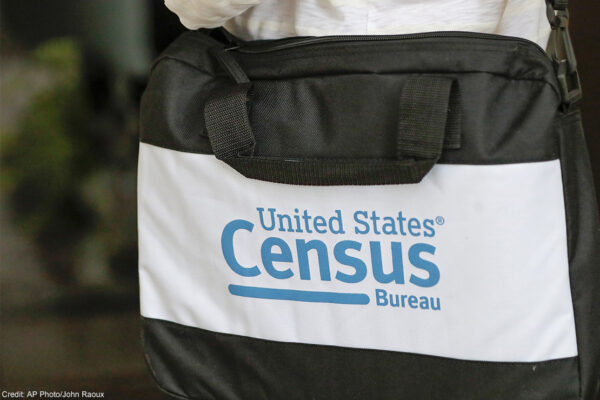
Voting Rights
Missouri v. U.S. Department of Commerce
A coalition of civil rights and immigrant-rights organizations has moved to intervene as defendants in a lawsuit that threatens to dismantle the Constitution‚Äôs long-standing requirement that the decennial census count all people living in the United States. Missouri asks the court to exclude undocumented immigrants and people living in the country on temporary visas from the census count used to determine congressional representation‚ÄĒan unprecedented move that would upend more than two centuries of constitutional practice.
Mississippi
Dec 2025
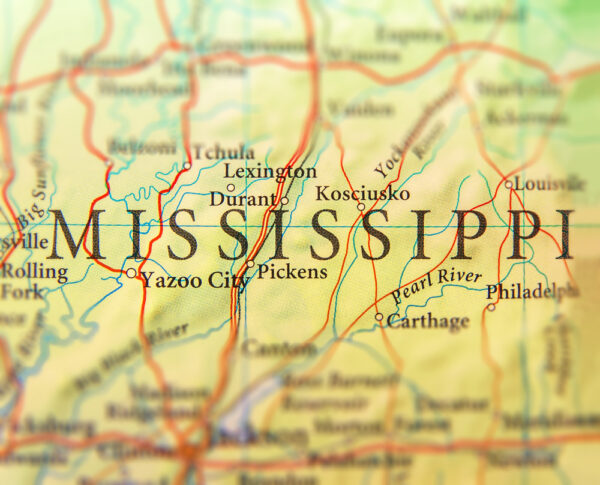
Voting Rights
White v. Mississippi State Board of Elections
District lines used to elect Mississippi’s Supreme Court have gone unchanged for more than 35 years. We’re suing because the current lines crack the Mississippi Delta and dilute the voting strength of Black Mississippians in state Supreme Court elections, in violation of the Voting Rights Act.
Court Case
Dec 2025

National Security
Human Rights
FOIA Case Seeking the Trump Administration’s Legal Justification for Deadly Boat Strikes
The Department of Justice‚Äôs Office of Legal Counsel (‚ÄúOLC‚ÄĚ) authored a legal opinion that reportedly claims to justify the Trump administration‚Äôs illegal lethal strikes on civilians in boats in the Caribbean Sea and eastern Pacific Ocean. Media reports indicate that, in addition to claiming that the strikes are lawful acts in an alleged ‚Äúarmed conflict‚ÄĚ with unspecified drug cartels, the OLC opinion also purports to immunize personnel who authorized or took part in the strikes from future criminal prosecution. Because the public deserves to know how our government is justifying these illegal strikes, and why they think the people who carried them out should not be held accountable, the ļž–” ”∆Ķ is seeking immediate release of the OLC legal opinion and related documents pursuant to the Freedom of Information Act.
U.S. Supreme Court
Dec 2025

Immigrants' Rights
Barbara v. Donald J. Trump
President Trump is attempting to undermine the promise of birthright citizenship to children born on U.S. soil. But the ļž–” ”∆Ķ and partners are fighting to protect the rights of citizens that are plainly stated in the Constitution, federal statute, and reaffirmed by the Supreme Court for more than a century. We‚Äôre arguing against the Trump administration in the Supreme Court and are confident we will win.
U.S. Supreme Court
Nov 2025

Voting Rights
Racial Justice
Allen v. Milligan
Whether Alabama’s congressional districts violate Section 2 of the Voting Rights Act because they discriminate against Black voters. We succeeded in winning a new map for 2024 elections which, for the first time, has two congressional district that provide Black voters a fair opportunity to elect candidates of their choosing despite multiple attempts by Alabama to stop us at the Supreme Court. Despite this win, Alabama is still defending its discriminatory map, and a trial was held in February 2025 to determine the map for the rest of the decade.
In May 2025, a federal court ruled that Alabama's 2023 congressional map both violates Section 2 of the Voting Rights Act and was enacted by the Alabama Legislature with racially discriminatory intent.
Washington, D.C.
Oct 2025

Voting Rights
League of Women Voters Education Fund v. Trump
On March 25, 2025, in a sweeping and unprecedented Executive Order, President Trump attempted to usurp the power to regulate federal elections from Congress and the States. Among other things, the Executive Order directs the Election Assistance Commission‚ÄĒan agency that Congress specifically established to be bipartisan and independent‚ÄĒto require voters to show a passport or other citizenship documentation in order to register to vote in federal elections. If implemented, the Executive Order would threaten the ability of millions of eligible Americans to register and vote and upend the administration of federal elections.
On behalf of leading voter registration organizations and advocacy organizations, the ļž–” ”∆Ķ and co-counsel filed a lawsuit to block the Executive Order as an unconstitutional power grab.
U.S. Supreme Court
Oct 2025
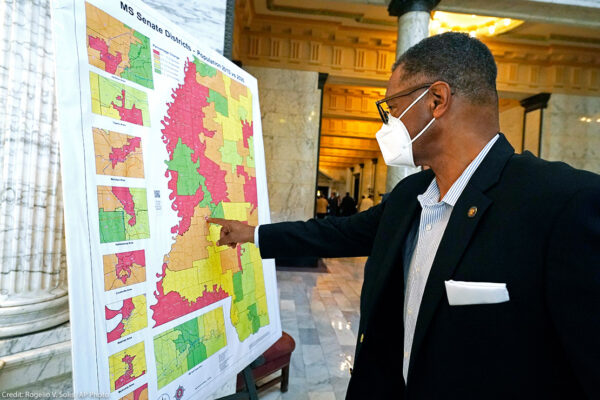
Voting Rights
State Board of Election Commissioners v. Mississippi State Conference of the NAACP
Mississippi has a growing Black population, which is already the largest Black population percentage of any state in the country. Yet. Black Mississippians continue to be significantly under-represented in the state legislature, as Mississippi’s latest districting maps fail to reflect the reality of the state’s changing demographics. During the 2022 redistricting process, the Mississippi legislature refused to create any new districts where Black voters have a chance to elect their preferred representative. The current district lines therefore dilute the voting power of Black Mississippians and continue to deprive them of political representation that is responsive to their needs and concerns, including severe disparities in education and healthcare.
U.S. Supreme Court
Oct 2025

Voting Rights
Louisiana v. Callais (Callais v. Landry)
Whether the congressional map Louisiana adopted to cure a Voting Rights Act violation in Robinson v. Ardoin is itself unlawful as a gerrymander.
Missouri
Sep 2025
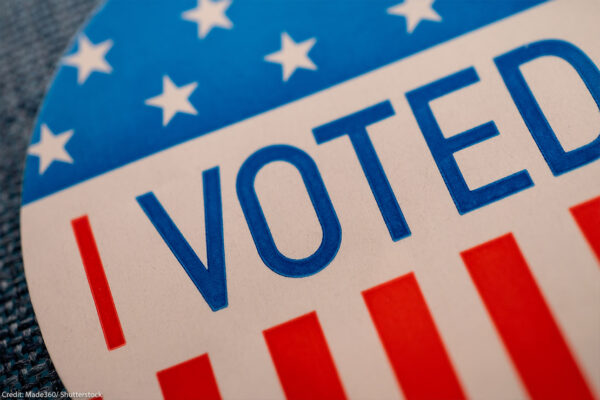
Voting Rights
Wise v. Missouri
In unprecedented fashion, the State of Missouri has redrawn the district lines used for electing members of Congress for a second time this decade. These new district lines are gerrymandered and will harm political representation for all Missourians, particularly Black residents in Kansas City, who have been divided along racial lines.
All Cases
1,677 Court Cases
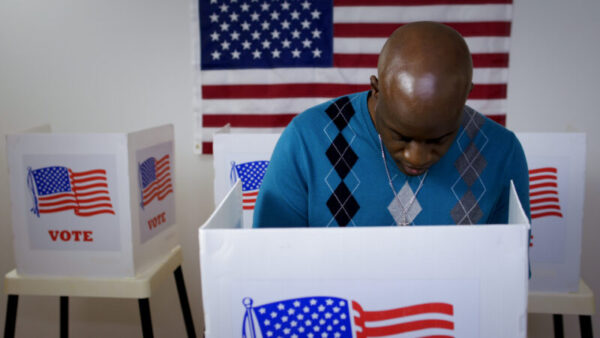
Maryland
Dec 2025
Voting Rights
United States v. DeMarinis
The Department of Justice (‚ÄúDOJ‚ÄĚ) sued Maryland demanding the release of its full, unredacted voter file, which includes the highly sensitive and personal data of every voter in the state. This suit appears to be part of DOJ‚Äôs effort to build a national voter database without congressional authorization, improperly question the validity of state voter rolls, and intimidate eligible voters in Maryland and around the country.
Explore case
Maryland
Dec 2025

Voting Rights
United States v. DeMarinis
The Department of Justice (‚ÄúDOJ‚ÄĚ) sued Maryland demanding the release of its full, unredacted voter file, which includes the highly sensitive and personal data of every voter in the state. This suit appears to be part of DOJ‚Äôs effort to build a national voter database without congressional authorization, improperly question the validity of state voter rolls, and intimidate eligible voters in Maryland and around the country.
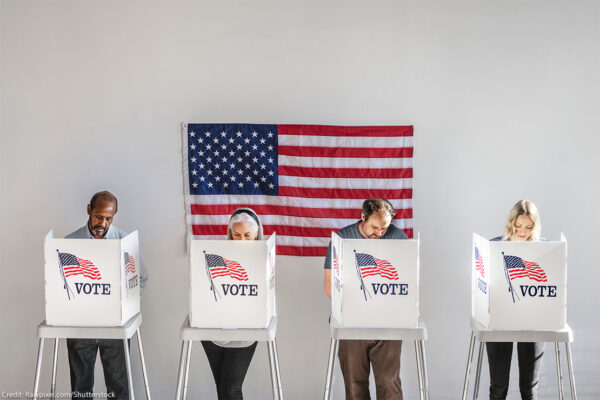
Maine
Dec 2025
Voting Rights
United States v. Bellows (Amicus)
Representing the ļž–” ”∆Ķ of Maine, the ļž–” ”∆Ķ Voting Rights Project and the ļž–” ”∆Ķ of Maine filed an amicus brief in a federal lawsuit over the federal government‚Äôs demand that Maine turn over its entire voter registration rolls, including with voters‚Äô sensitive personal data such as drivers‚Äô license numbers and partial social security numbers.
Explore case
Maine
Dec 2025

Voting Rights
United States v. Bellows (Amicus)
Representing the ļž–” ”∆Ķ of Maine, the ļž–” ”∆Ķ Voting Rights Project and the ļž–” ”∆Ķ of Maine filed an amicus brief in a federal lawsuit over the federal government‚Äôs demand that Maine turn over its entire voter registration rolls, including with voters‚Äô sensitive personal data such as drivers‚Äô license numbers and partial social security numbers.

Massachusetts Supreme Court
Dec 2025
Criminal Law Reform
Commonwealth v. Jose Arias
This case asks whether the stop, search, and arrest of an individual after a traffic stop was unconstitutional under the Massachusetts Declaration of Rights. The case arises from a remarkable set of facts: although motivated by a desire to search Mr. Arias‚Äôs car for drugs, the police initiated the stop based on a day-old alleged traffic infraction and then arrested Mr. Arias for allegedly neglecting to stop his car immediately when the police initiated the stop. The ļž–” ”∆Ķ joined an amicus brief authored by the ļž–” ”∆Ķ of Massachusetts and the law firm Proskauer Rose, which argues that the police actions in this case were unconstitutional for three reasons. First, pretextual traffic stops, such as this one, violate the Massachusetts Declaration of Rights. Second, arrests for misdemeanors not involving breaches of the peace also violate the Massachusetts Declaration of Rights. Third, the statute prohibiting drivers from neglecting to stop is unconstitutionally vague as applied to this case.
Explore case
Massachusetts Supreme Court
Dec 2025

Criminal Law Reform
Commonwealth v. Jose Arias
This case asks whether the stop, search, and arrest of an individual after a traffic stop was unconstitutional under the Massachusetts Declaration of Rights. The case arises from a remarkable set of facts: although motivated by a desire to search Mr. Arias‚Äôs car for drugs, the police initiated the stop based on a day-old alleged traffic infraction and then arrested Mr. Arias for allegedly neglecting to stop his car immediately when the police initiated the stop. The ļž–” ”∆Ķ joined an amicus brief authored by the ļž–” ”∆Ķ of Massachusetts and the law firm Proskauer Rose, which argues that the police actions in this case were unconstitutional for three reasons. First, pretextual traffic stops, such as this one, violate the Massachusetts Declaration of Rights. Second, arrests for misdemeanors not involving breaches of the peace also violate the Massachusetts Declaration of Rights. Third, the statute prohibiting drivers from neglecting to stop is unconstitutionally vague as applied to this case.

Minnesota
Dec 2025
Criminal Law Reform
Osorio-Calderon v. Warden, FCI Sandstone
This case is about whether people unlawfully incarcerated beyond their mandatory transfer dates under the First Step Act can file habeas corpus petitions seeking their release from prison onto prerelease custody in the community.
Explore case
Minnesota
Dec 2025

Criminal Law Reform
Osorio-Calderon v. Warden, FCI Sandstone
This case is about whether people unlawfully incarcerated beyond their mandatory transfer dates under the First Step Act can file habeas corpus petitions seeking their release from prison onto prerelease custody in the community.
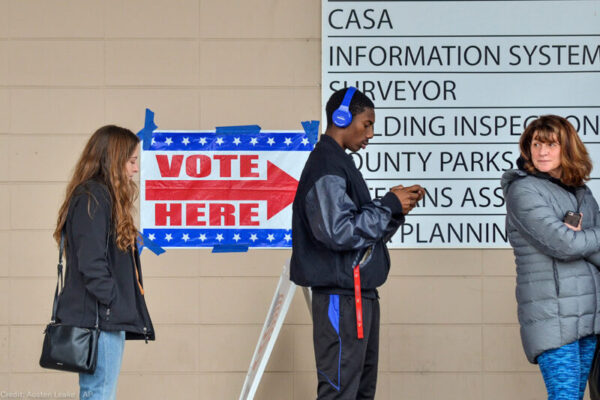
New Hampshire
Dec 2025
Voting Rights
Coalition for Open Democracy v. Scanlan
This lawsuit challenges HB 1569, a new law that will make New Hampshire the only state to require every person to produce documentary proof of citizenship when they register to vote for both state and federal elections. It also challenges HB 1569‚Äôs elimination a preexisting protection for voters‚ÄĒnamely, an affidavit option that allowed voters who faced surprise challenges to their eligibility at the polls to swear to their qualifications and cast a ballot. Accordingly, HB 1569 violates the First and Fourteenth Amendments of the U.S. Constitution by placing substantial burdens on New Hampshirites at all stages of the voting process, and will arbitrarily disenfranchise hundreds, if not thousands of qualified voters.
Explore case
New Hampshire
Dec 2025

Voting Rights
Coalition for Open Democracy v. Scanlan
This lawsuit challenges HB 1569, a new law that will make New Hampshire the only state to require every person to produce documentary proof of citizenship when they register to vote for both state and federal elections. It also challenges HB 1569‚Äôs elimination a preexisting protection for voters‚ÄĒnamely, an affidavit option that allowed voters who faced surprise challenges to their eligibility at the polls to swear to their qualifications and cast a ballot. Accordingly, HB 1569 violates the First and Fourteenth Amendments of the U.S. Constitution by placing substantial burdens on New Hampshirites at all stages of the voting process, and will arbitrarily disenfranchise hundreds, if not thousands of qualified voters.
